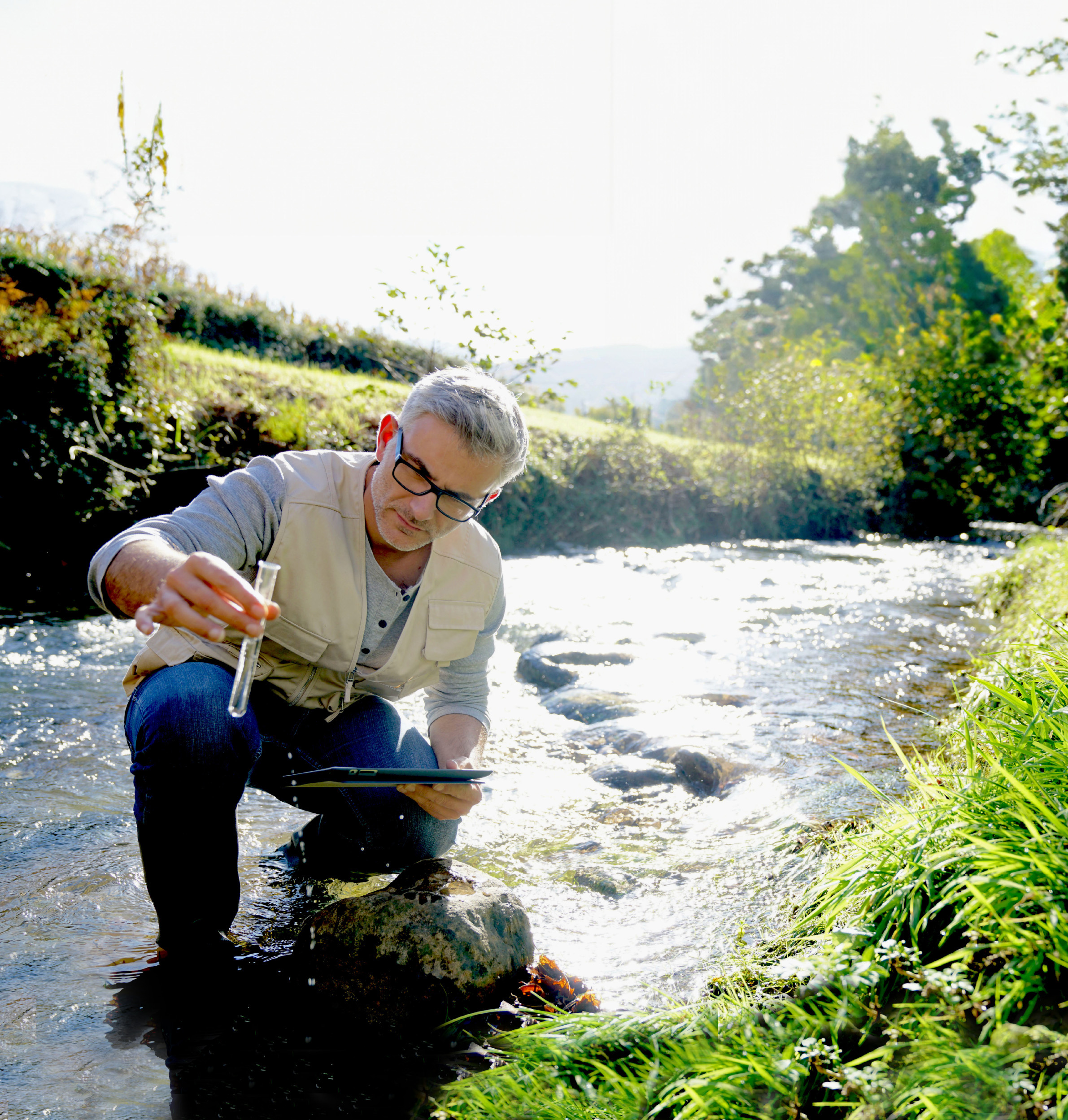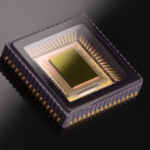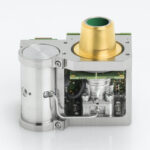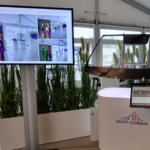Share this post:

Miniature sensors, developed by ‘Fluorograph’ joint laboratory, offer rapid on-site measurement of traces of ‘forever chemicals’, at values below European Union threshold
Grenoble and Chambéry, France, April 17, 2024 – Grapheal, a deep-tech startup developing specialized biosensors, and the EDYTEM laboratory, a joint research unit between France’s Center for Scientific Research (CNRS) and Savoie Mont Blanc University, today announce the fine-tuning of a portable device for monitoring water-borne PFAS pollution. Made up of miniature sensors, this device provides in situ direct measurements of pollution linked to per- and polyfluoroalkyl substances (PFAS) in water.
Grapheal and EDYTEM co-developed the portable water monitoring device through their joint laboratory ‘Fluorograph’, under the ‘LabCom’ program supported by France’s National Research Agency (Agence Nationale de la Recherche, ANR).
PFAS are a class of around 12,000 chemicals which, due to their unique properties, are now being used in a huge number of applications and devices. A major mapping project showed that they can be found at millions of sites throughout Europe. As a result of their extraordinary persistence, toxicity and (bio)accumulation, PFAS are now described as ‘forever chemicals’. They cause major health problems and environmental damage. Consequently, detecting trace amounts of PFAS and monitoring them has become a global priority. Evaluating PFAS contamination of water sources is currently a highly complex matter, requiring laboratory testing with the use of sophisticated and costly equipment.
To address this, the Fluorograph laboratory developed a miniature electronic sensor, the size of a credit card, that can conduct on-site sampling tests, making contamination mapping a much simpler task. Initial test results using these new sensors to detect one of the most common PFAS compounds, PFOA (perfluorooctanoic acid), in water, showed detection limits in the region of 300 ng/L, below the European Union regulatory maximum of 500 ng/L of total PFAS in drinking water.
“The high sensitivity and ease of use of the Fluorograph device allow for quantitative detection of PFAS in situand help meet the pressing need to map polluted areas and monitor them over time,” said Guy Royal, researcher at EDYTEM. “It’s a valuable tool for regulatory organizations, field researchers and other staff with responsibility for water management.”
“As it is produced with printed electronics and uses a carbon sensor, Flurograph’s device has a very low environmental impact,” said Vincent Bouchiat, CEO of Grapheal. “On-site analysis is made easier, making it possible to increase the density of tests while significantly reducing the financial burden associated with frequent water analyses. In this context, Grapheal is looking for industrial partners to support the industrialization of its solution and the increase in production volume.”
These initial results have established the Fluorograph joint laboratory as a leader in environmental monitoring solutions, able to rise to the emerging challenges in water quality and the fight against pollution. The laboratory’s electrochemical device represents a major step forward for environmental science and public health. By placing the emphasis on research, sustainability and the implementation of environmentally responsible nanotechnologies, it could have a positive impact on ecosystems and communities worldwide.
About the EDYTEM laboratory
The EDYTEM laboratory is an interdisciplinary research facility that studies mountain environments via a combination of earth, life and human sciences. It focuses on biodiversity, the impacts of climate change and the sustainable development of upland regions. EDYTEM aims to understand the environmental and societal issues affecting upland areas to promote sustainable development. Working with a wide variety of scientific partners and expertise, its research contributes to preserving upland ecosystems and adapting them to natural and human influences, including water quality. The laboratory is based at the Université Savoie Mont Blanc (USMB), which has 18 research laboratories that deploy their expertise in three main areas: human-environment interactions, services and industries of the future, and cultural heritage and a changing society.
About Grapheal
Grapheal is a deep-tech startup specialized in the development and production of rapid, sensitive biosensors based on proprietary electrochemical nanodevices. It was founded in 2019 by the team of scientists behind the technologies at the Institut Néel, at the French Research Center (CNRS) in Grenoble. This spin-off company works on the biomedical applications of carbon nanostructures, providing high-sensitivity detection of chemical and biochemical markers. These are designed to interface readily with mobile technologies such as smartphones. Grapheal’s innovations have received several awards, including ‘Best of Innovation’ at CES 2022.
To download documents, you can right-click on the links above and chose « Save link as… »




